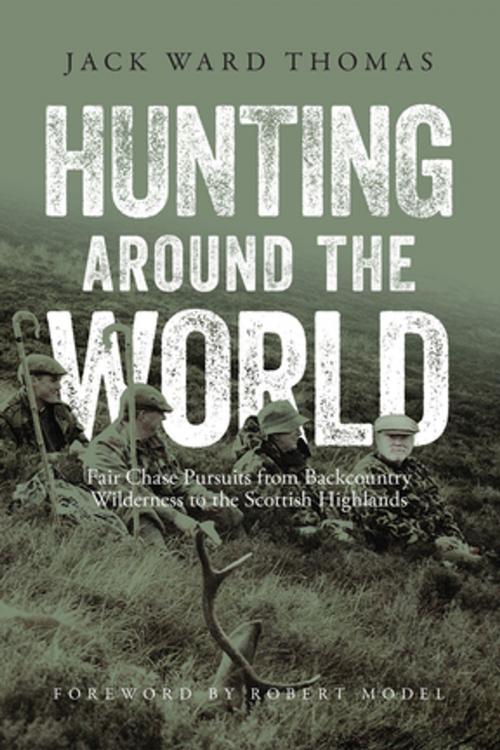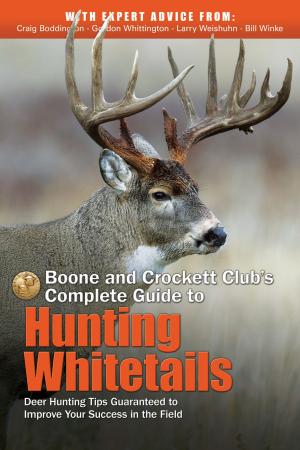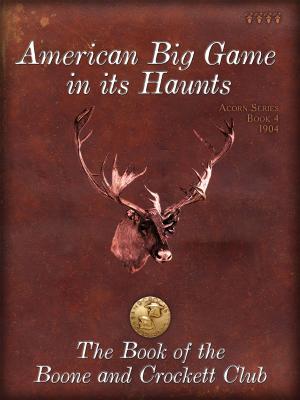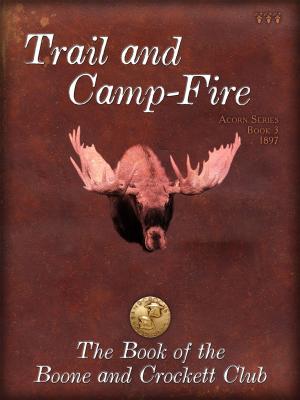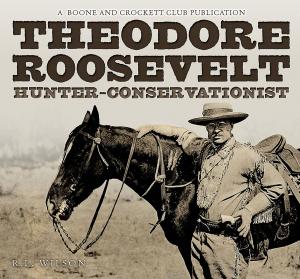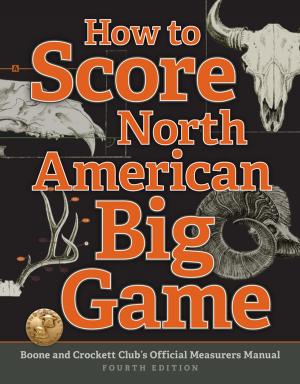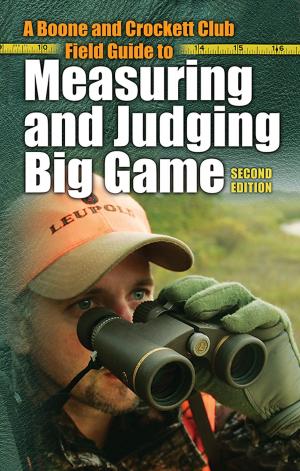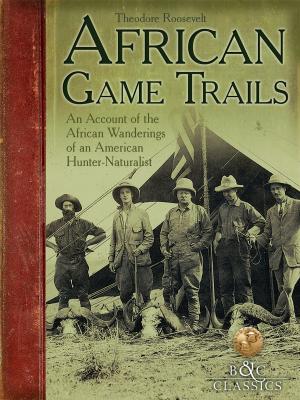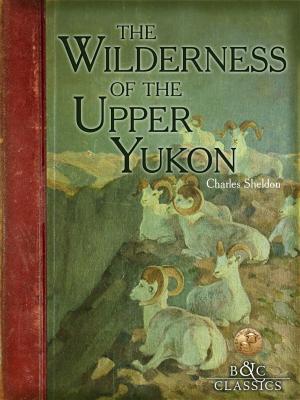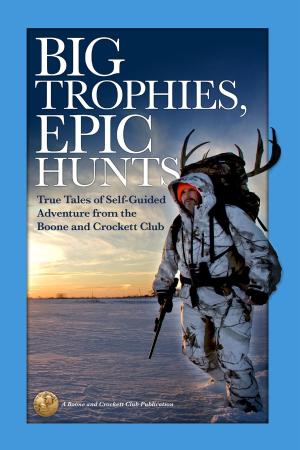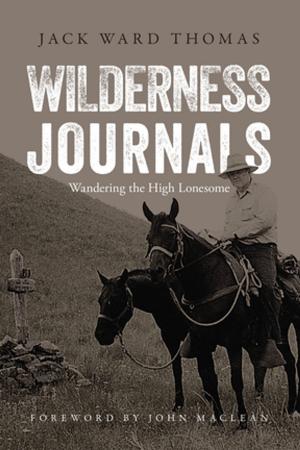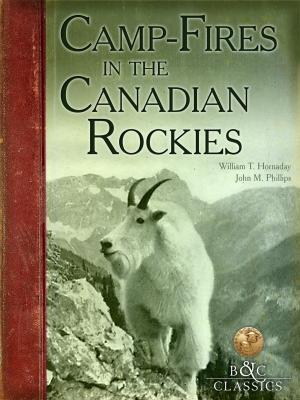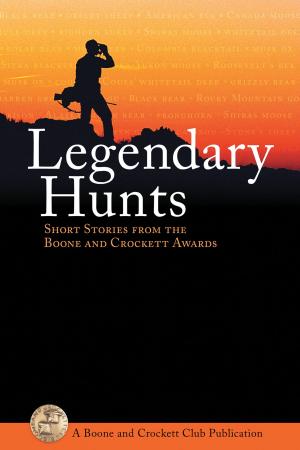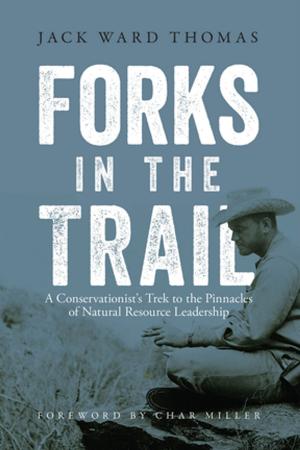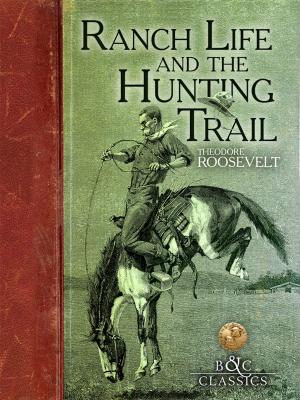Hunting Around the World
Fair Chase Pursuits from Backcountry Wilderness to the Scottish Highlands
Nonfiction, Sports, Outdoors, Hunting| Author: | Jack Ward Thomas, Julie Tripp | ISBN: | 9781940860190 |
| Publisher: | Boone and Crockett Club | Publication: | August 1, 2015 |
| Imprint: | Boone and Crockett Club | Language: | English |
| Author: | Jack Ward Thomas, Julie Tripp |
| ISBN: | 9781940860190 |
| Publisher: | Boone and Crockett Club |
| Publication: | August 1, 2015 |
| Imprint: | Boone and Crockett Club |
| Language: | English |
Hunting nourishes human bodies, minds, and, in some cases, careers.
Like many rural Texas youths in the 1940s, Jack Ward Thomas learned to hunt early on. It provided food for his family and a lifetime of enjoyment. But hunting also brought Thomas to his life's work in conservation, highlighted by his tenure as chief of the U.S. Forest Service.
Hunting Around the World offers the best accumulated stories, nostalgia, and wisdom of a quintessential hunter-conservationist.
Thomas hunted red stag in the Scottish highlands, doves in Argentina, caribou in Alaska, and all manner of big, small, and feathered game across the United States. But his first and most enduring love was hunting in the "high lonesome" of western wildernesses, most often with his wise companion in adventure, Bill Brown. Thomas's storytelling about those quests is classic sporting literature. Readers will feel the chill of a frosty mountain morning, tense moments as a bull elk wanders into shooting range, exhilaration as well as "pangs of conscience" in making a kill, and the wistfulness of truth that old age and old injuries will someday bring every hunter's backcountry chapters to an end.
The field accounts in Hunting Around the World are enriched by the perspective of a man who devoted his life to sustainable management of natural resources. As author, Thomas often switches from his well-worn hunting hat to that of a veteran biologist, field researcher, and U.S. Forest Service chief. This unique insight is what makes Thomas's hunting memoir an unusual and special work.
Thomas concludes with thoughtful analyses of why he hunted, fair chase, simple-minded critics of hunting, habitat loss as the greatest threat to both wildlife and hunting, and his final surrender—leaving his cherished firearms to heirs: "It seems sad that I can't pass along my memories that are attached to the rifles, shotguns, and pistols. But that's as it should be. Guns and their owners should make their own memories together."
Hunting nourishes human bodies, minds, and, in some cases, careers.
Like many rural Texas youths in the 1940s, Jack Ward Thomas learned to hunt early on. It provided food for his family and a lifetime of enjoyment. But hunting also brought Thomas to his life's work in conservation, highlighted by his tenure as chief of the U.S. Forest Service.
Hunting Around the World offers the best accumulated stories, nostalgia, and wisdom of a quintessential hunter-conservationist.
Thomas hunted red stag in the Scottish highlands, doves in Argentina, caribou in Alaska, and all manner of big, small, and feathered game across the United States. But his first and most enduring love was hunting in the "high lonesome" of western wildernesses, most often with his wise companion in adventure, Bill Brown. Thomas's storytelling about those quests is classic sporting literature. Readers will feel the chill of a frosty mountain morning, tense moments as a bull elk wanders into shooting range, exhilaration as well as "pangs of conscience" in making a kill, and the wistfulness of truth that old age and old injuries will someday bring every hunter's backcountry chapters to an end.
The field accounts in Hunting Around the World are enriched by the perspective of a man who devoted his life to sustainable management of natural resources. As author, Thomas often switches from his well-worn hunting hat to that of a veteran biologist, field researcher, and U.S. Forest Service chief. This unique insight is what makes Thomas's hunting memoir an unusual and special work.
Thomas concludes with thoughtful analyses of why he hunted, fair chase, simple-minded critics of hunting, habitat loss as the greatest threat to both wildlife and hunting, and his final surrender—leaving his cherished firearms to heirs: "It seems sad that I can't pass along my memories that are attached to the rifles, shotguns, and pistols. But that's as it should be. Guns and their owners should make their own memories together."
